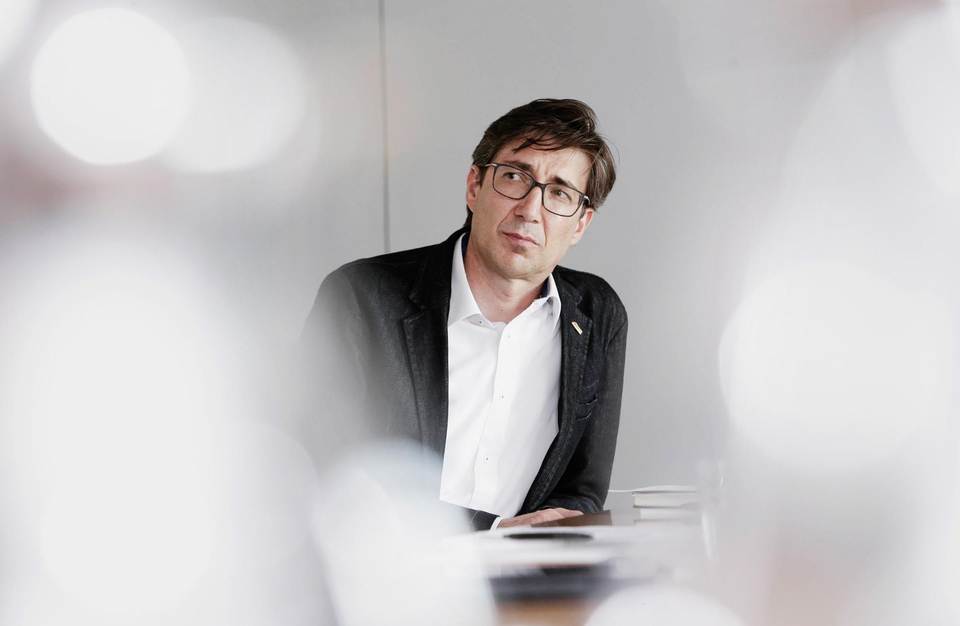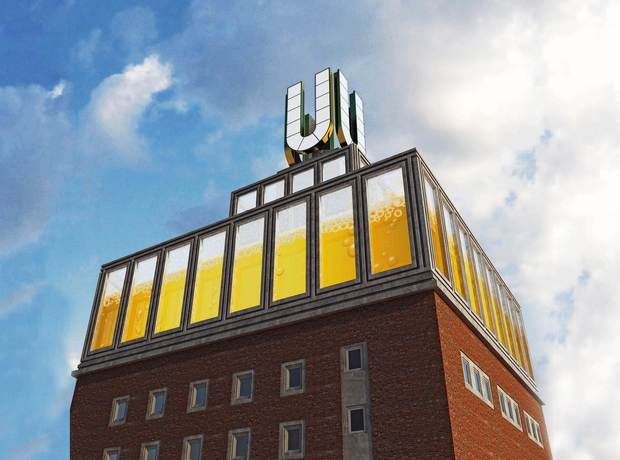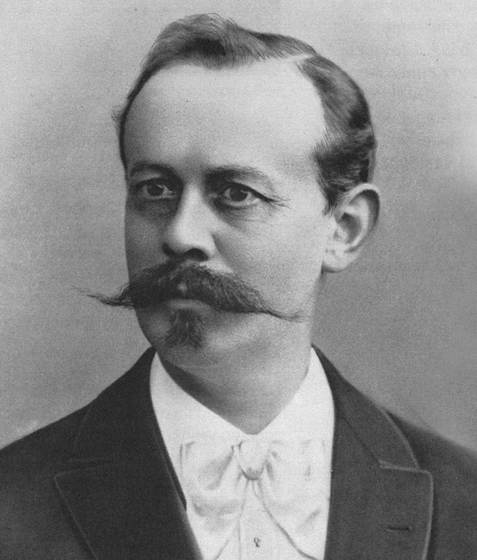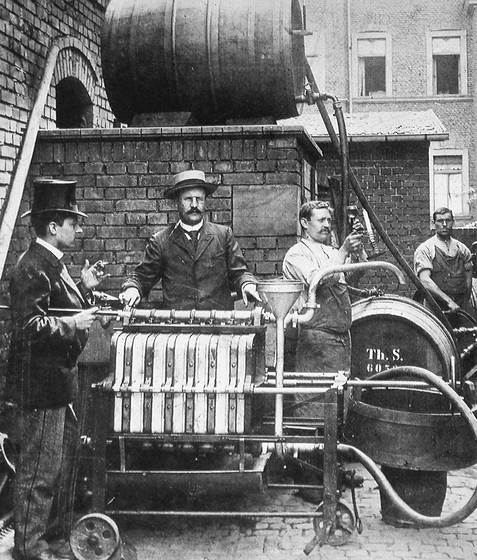Which systems are customers asking for today which go beyond the single machine or piece of equipment?
Petsche: Customers today don’t just expect tasks to be fulfilled in the sense of performance figures and formats. A line from KHS should also be able to map out the future. It must be prepared to process prospective additional formats or be able to have new technologies added to it, such as those for secondary and tertiary packaging. And it must satisfy our customers’ regulations regarding sustainability. Our system solution concept allows us to think outside the box together with regard to flexibility, modularity and also with an eye to saving on resources.
Wetzel: There’s no more question of the single machine per se. Customers want to procure a function in the knowledge that they can develop this further as they require. The future is becoming ever harder to predict regarding the life cycles of consumer products. Bottle sizes are changing, for instance; the trend is moving away from carbonated soft drinks to still beverages; and aseptic products are on the rise – you can’t just set up your production line for a single type of product anymore.
Dingeldein: This is why we provide a platform which promotes the concept of sustainability. This way we can offer customers who process many different formats on their line additional functions even in years to come which can be quickly integrated into the system as simple additional modules. We plan ahead for the future with retrofits* and configure our lines accordingly.
* Retrofit = modernization of systems through the replacement of parts and modules.
Edgar Petsche
Born in Canada in 1967, Petsche was a man of the first hour: after completing his degree in mechanical engineering he joined KHS in 1993, the year of the merger. He started to work in Sales in 1994, first for North America and later for Eastern Europe. From 2006 to 2010 responsible for sales in Market Zone Africa/Middle East, he has headed Market Zone Europe/CIS since 2010.
How does KHS see itself as a result of this situation?
Petsche: We don’t just sell plant engineering but support our customers by giving them advice. We intensively study the markets and trends and, thanks to our knowledge, are able to say how a system can still achieve high levels of efficiency in 25 years’ time. KHS is less of a supplier than a partner, together with whom our clients jointly devise their system solutions.
Dingeldein: As a turnkey supplier we cater for all of a beverage producer’s demands so that he or she can concentrate on their own line of business. We have to understand and meet the future requirements behind the technical task specifications.
Wetzel: A turnkey line works like an orchestra. The focus isn’t on the top soloist who stands out with his or her single function. To ensure sustainability, efficiency and a good performance, everything and everyone has to interact.
»Partners like KHS whom you can trust throughout the entire value chain are much sought after.«
Dingeldein: Nowadays we also have to integrate complete lines, half lines or third-party equipment, a task which the customer’s planning office performed in the past.
Petsche: This has greatly changed in the past few years. Beverage producers who want to center on the quality of their products can’t concern themselves with every single detail of the production system. Partners like KHS whom you can trust throughout the entire value chain are much sought after – from line design through construction, commissioning and personnel training to after-sales service, where in the concept of predictive maintenance service work is only performed when needed.
Tobias Wetzel
After studying business administration the Swabian joined The Coca-Cola Company in Essen in 1997. After working for Schmalbach-Lubeca and Salzgitter Mannesmannröhren-Werke, he joined KHS in 2011. Wetzel (45) has been the managing director of KHS Corpoplast and head of the Service Division since 2015.
Who decides on the systems supplier in a company?
Wetzel: Investment decisions are increasingly made by the finance people. They usually only think in cycles of 10 to 15 years. In our opinion this is short sighted, as service lives of 30 years and more are normal for KHS. We have to see what messages we can use to have a bearing on the outcome of the decision-making process. There are cost benefits through predictive maintenance, for example, as machine parts can be used for longer, yet on the other hand the technology required for this costs money. Another topic is simple operation – in view of the lack of specialist personnel, this is a decisive factor. We design our lines to be self-explanatory so that they can be operated by fewer and less qualified operating and maintenance personnel. We shorten changeover times and when planning training courses always consider whether they have to be held on site or can be taught elsewhere. Ten years ago we already started integrating training elements into our HMI.
Dingeldein: The question is how things complement one another. HMI, fast changeovers, a holistic view of the line – these are the technical aspects. But how do we combine these with the human factor so that everything works? There’s a high fluctuation among operating personnel today which we have to react to. Knowledge has to stay with the machine and no longer with the operator.
Petsche: In the past our customers used to employ an entire team of engineers. Nowadays people are thinking about where they can shift responsibility to the supplier. KHS can score here both with its consultancy program and with the development of new products. At the same time you can manufacture the most amazing systems but if you can’t maintain them on site, you have a problem. We don’t just supply to England and France but also to Uzbekistan, Senegal and other remote markets. We can only be as good as our employees who fly the flag for KHS in these places.
Albert Dingeldein
The German-Peruvian studied brewing and beverage technology in Munich. After twenty years in the brewing and beverage industry, including working as the plant manager for a brewery in Paraguay, Dingeldein, now 45, joined KHS as the head of the Line Engineering Product Center in 2016 where he is responsible for line design and production.
What distinguishes KHS in the regions?
Wetzel: We have extremely well qualified engineers deployed locally. We’ve invested a lot in this area in the last three years and will continue to do so. I don’t believe that you can survive on the market for 150 years without providing competent service.
Petsche: There’s a development towards advanced service solutions. KHS stands out here with its holistic approach which results in high levels of availability for our durable and robust machines. The prerequisite for this is the advice that is provided primarily by our local companies. They ensure long-term customer satisfaction with their service expertise and availability of parts, conversions and specialists. For me, this is the greatest benefit we can have with regard to our follow-up business. People also make the difference in project management: excellently trained employees and teams who harmonize with one another and perform, resulting in exceptional customer relations.
Dingeldein: I can confirm this. Proximity to our regional centers is important as this is where everything starts.
Wetzel: Our head office is a center of expertise and support, acting as a facilitator. The global networking of our structure is a significant success factor for KHS. When our customers develop new markets, KHS is there, whether in Myanmar, Chile or Pakistan. Here, we can support beverage producers on their way to success to the best of our ability.
»The global networking of our structure is a significant success factor for KHS.«
What’s the driving force when designing a system solution?
Wetzel: Our technologies have to offer our customers added value. Plasmax technology only makes sense, for example, because the consumer wants the smallest possible bottles for every product, however unusual. At the same time our customers want to reduce weights. The lower the weight of the bottle, the shorter the service life of the product. The use of Plasmax technology is justified here as it considerably lengthens the shelf life by combining the benefits of PET and glass. This fact wasn’t really appreciated 15 years ago but now a new demand has developed for it.
Petsche: The market and the consumer dictate what happens – both to our customers and to us. Beer, CSDs and sensitive beverages – diversification is the order of the day concerning both products and the packaging. Product cycles have become much shorter. We’re thus expanding our portfolio accordingly through specific acquisitions – such as Corpoplast with its PET expertise – and by further developing its organization KHS has grown into a systems supplier. My vision is that the interfaces between the customer and KHS will continue to merge and that added value in itself will increasingly become a primary concern. For me, many current developments such as predictive autonomous maintenance are steps on the way to achieving this.
Wetzel: The trend is moving towards customers expecting peace of mind and wanting us to operate their systems. At the moment our core area of expertise lies in the construction and maintenance of plant engineering systems. There are so many stakeholders and influential factors involved in the operation of a line that we have to precisely define where the operator’s authority ends and the customer’s begins. Whoever takes on responsibility must have influence over the production planning. At the end of the day this must be economically viable for both the customer and us.

What’s KHS doing to anticipate new trends on the beverage market?
Wetzel: Besides our various processes which regulate the development of innovations I think that the people at KHS are the main initiators. Each and every one of us is an interested consumer who walks around with their eyes wide open. Ideas such as the Nature MultiPack™ aren’t devised at someone’s desk but in normal everyday situations, during people’s free time or when talking to colleagues. As a company we also have to provide a certain individual room for expression to enable such developments to evolve.
Petsche: In addition to the informative consumer insight reports we analyze and interpret, I see the dialog with our customers as the true source of inspiration. We deal both with a number of owner-managed, extremely innovative companies and with our global key accounts. We talk to all of them in depth in order to understand what they believe to be the long-term challenges on the market. Many ideas arise during workshops with our customers, to which we also invite suppliers such as film, cardboard and chemicals experts. On basis of this we consider how these can be translated into new products. In the 150 years of our history, our pioneering spirit has shaped us and turned us into an innovative leader.



























